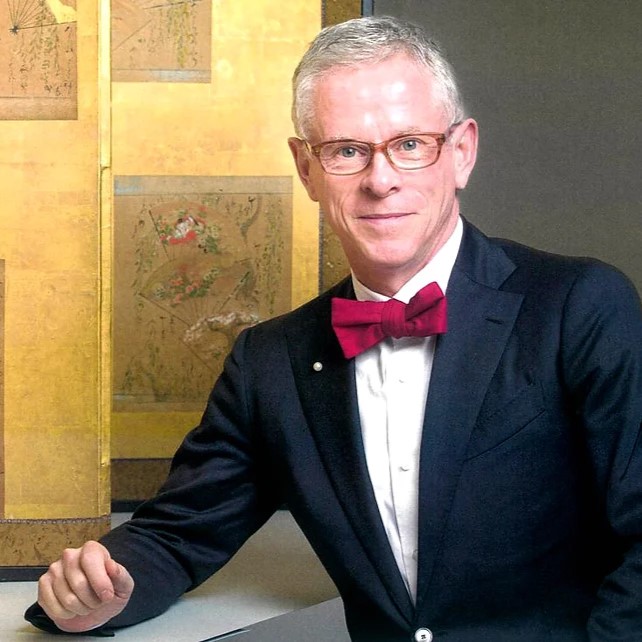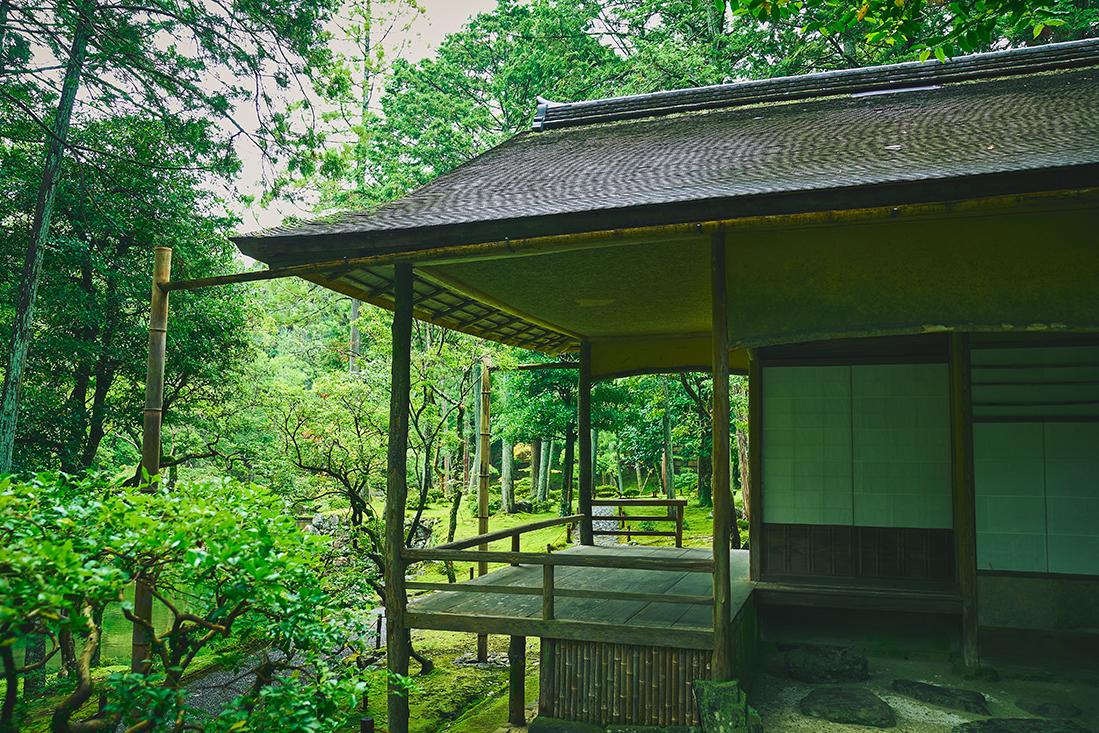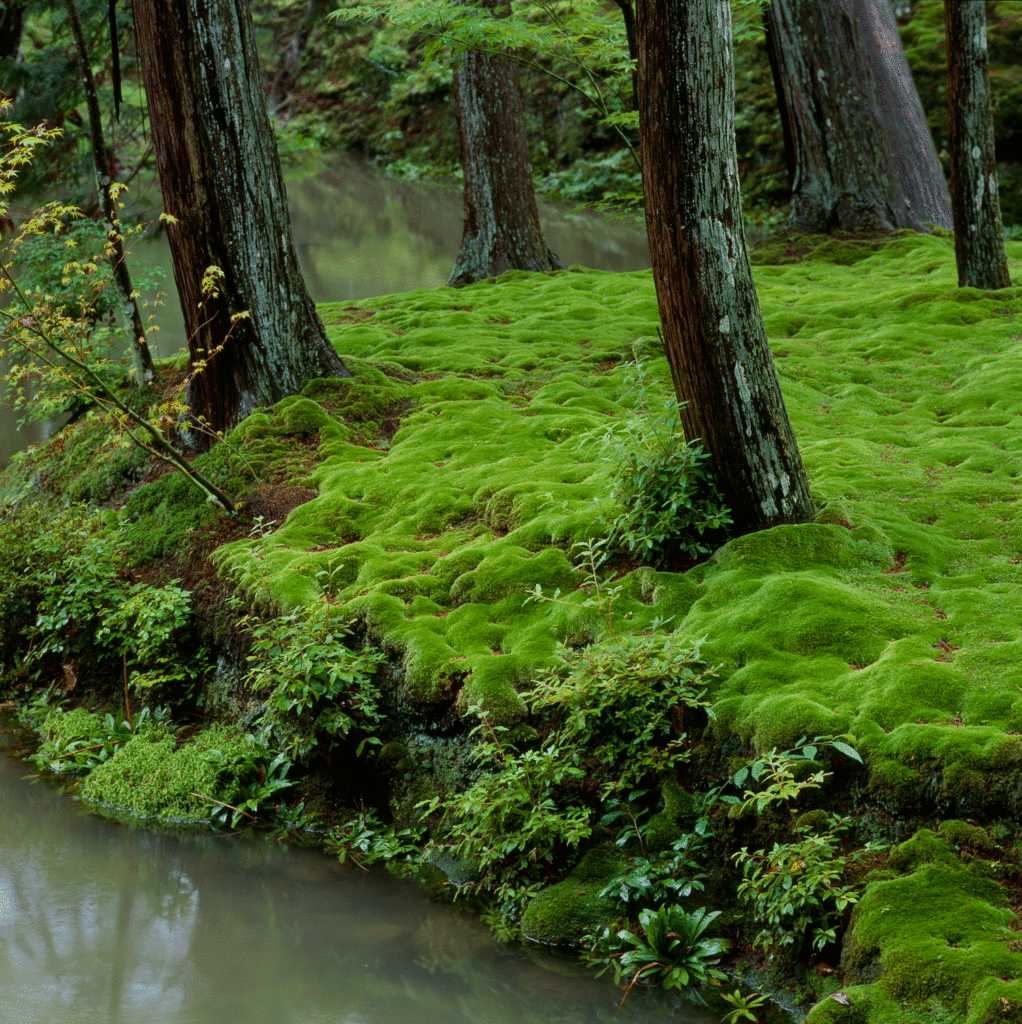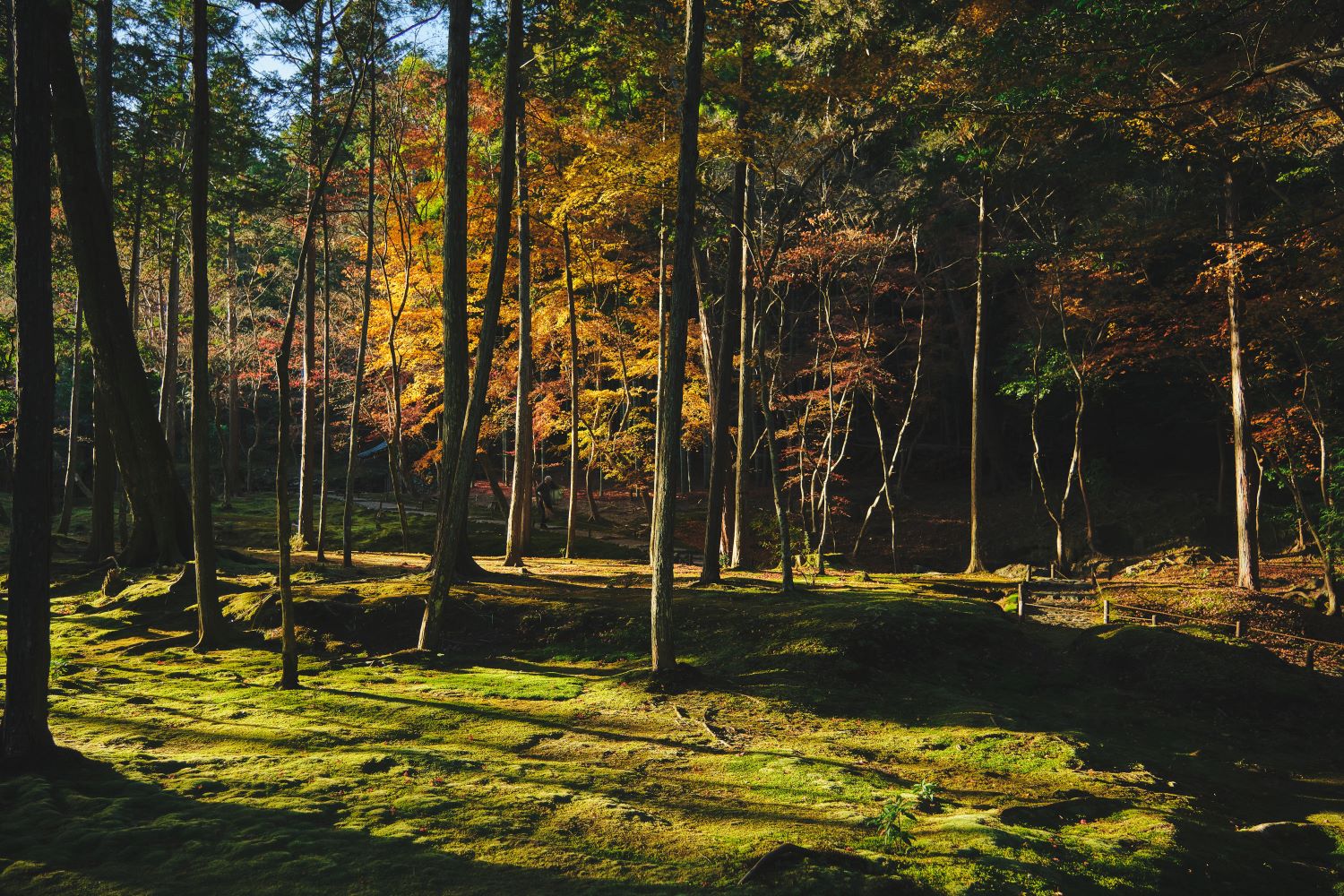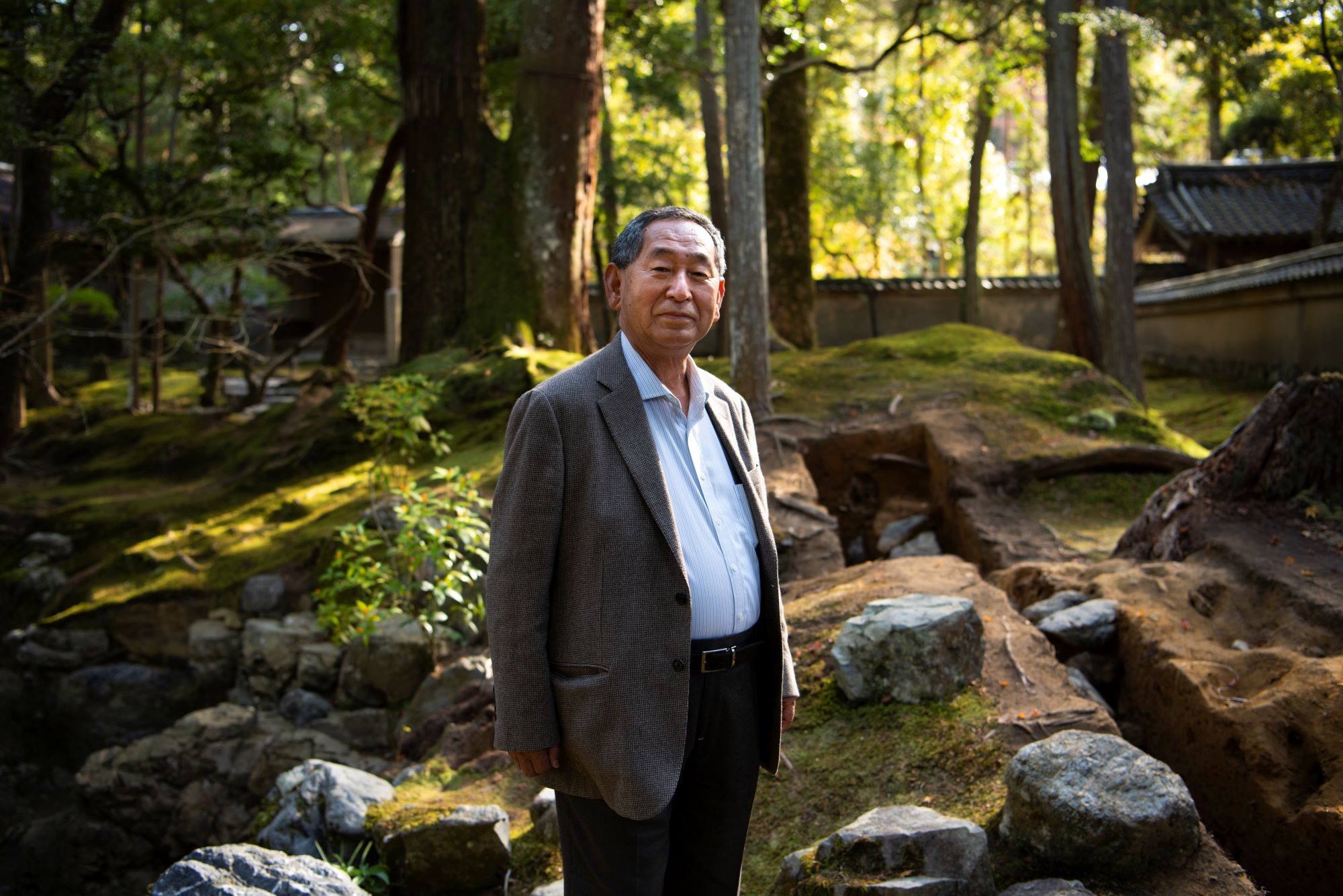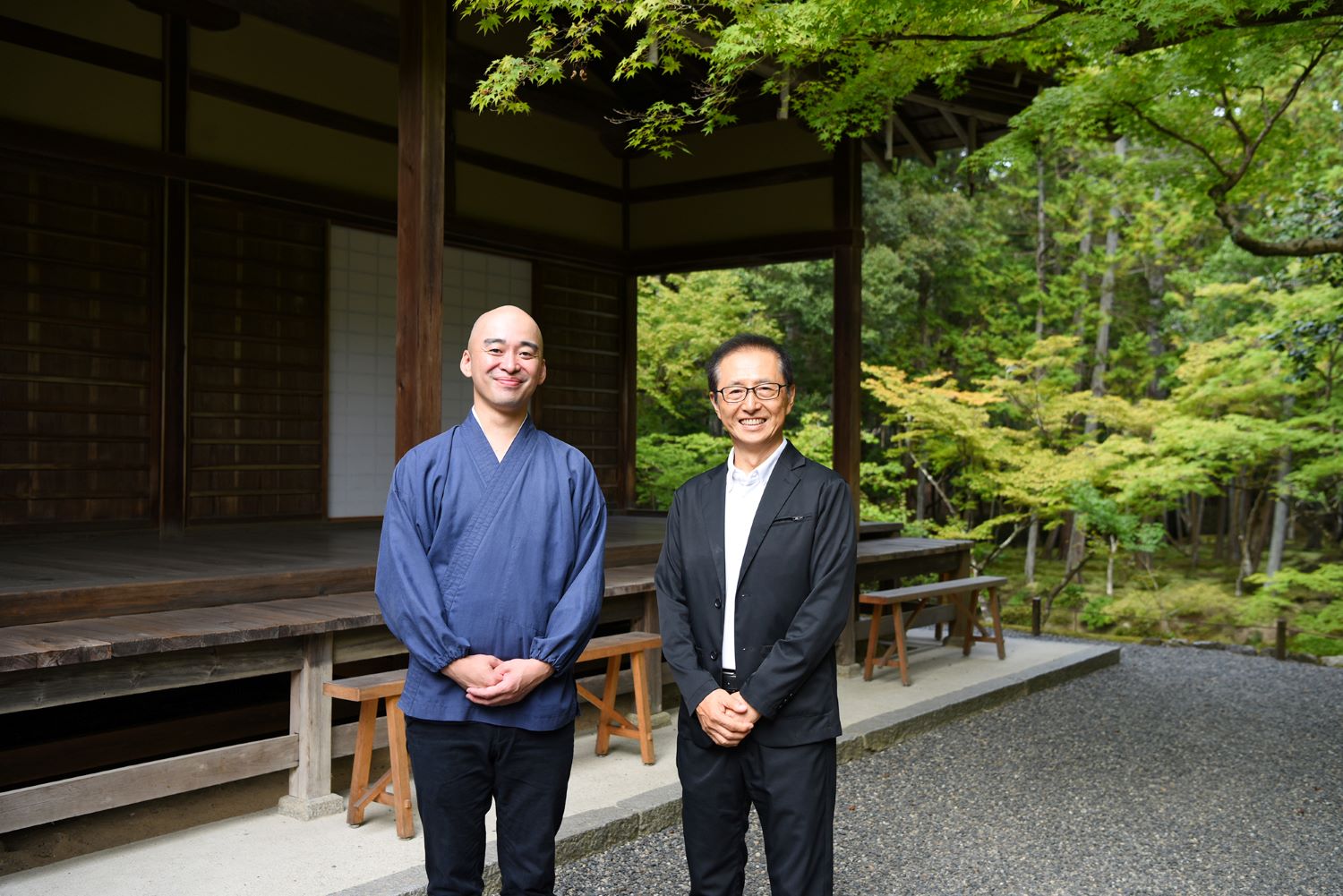2025.11.20
Winds of Gold—A Hundred Views of Saihoji Vol. 19
Peter MacMillan / a translator, scholar, poet
In this series of essays on Saihoji the renowned translator of Japanese poetry and poet Peter MacMillan records his impressions of and reflections on his visits to the garden throughout the four seasons. We hope that through these essays you the readers and fans of Saihoji can feel as if you are also present in the magical garden even when you cannot visit us.
Giving Thanks to the Stewards of Saihoji and to All
It is the winter season, one of my favorite times to see the garden and my guide today is Mr. Taniguchi who has been working for Saihoji for almost 40 years. When I first made a connection to Saihoji it was through him, and he has always been exceptionally kind. As we walk around the garden, we discuss the changes between the present garden and the past.
Here are some excerpts from his talk:
In the old days, the only way to visit Saihoji was by making an application by postcard. There were much fewer visitors in winter, and there were times when there was only one group of visitors. People would sometimes arrive unannounced and there were times when the weather was bad or on snowy days, when we went to greet the guests at the appointed time but no one showed up.
Thirty years ago, there were fewer houses around Saihoji and there was a large bamboo grove. At that time, when the cold wind blew and the bamboo grove swayed in autumn or winter winds, it looked as if the mountain itself was swaying, making it look so cold but beautiful. These days the amount of snow has decreased, and even now it feels cold, but not as cold as it used to be. In the old days the ground froze completely and in the pond the carp would huddle together for warmth near the spring water (Asahi no Shimizu). These days the summer is so hot and long and it seems the autumn is disappearing too.
In the past, when I would walk around the garden alone in the evenings during winter, it was often so quiet that it was almost scary. I remember hearing the sound of trains passing in the distance and the cheers from the Nishi-Kyogoku Stadium more clearly than you can now.Now there is more traffic in front of Saihoji, so there is more noise and sometimes I feel that noise pollution is becoming a problem.
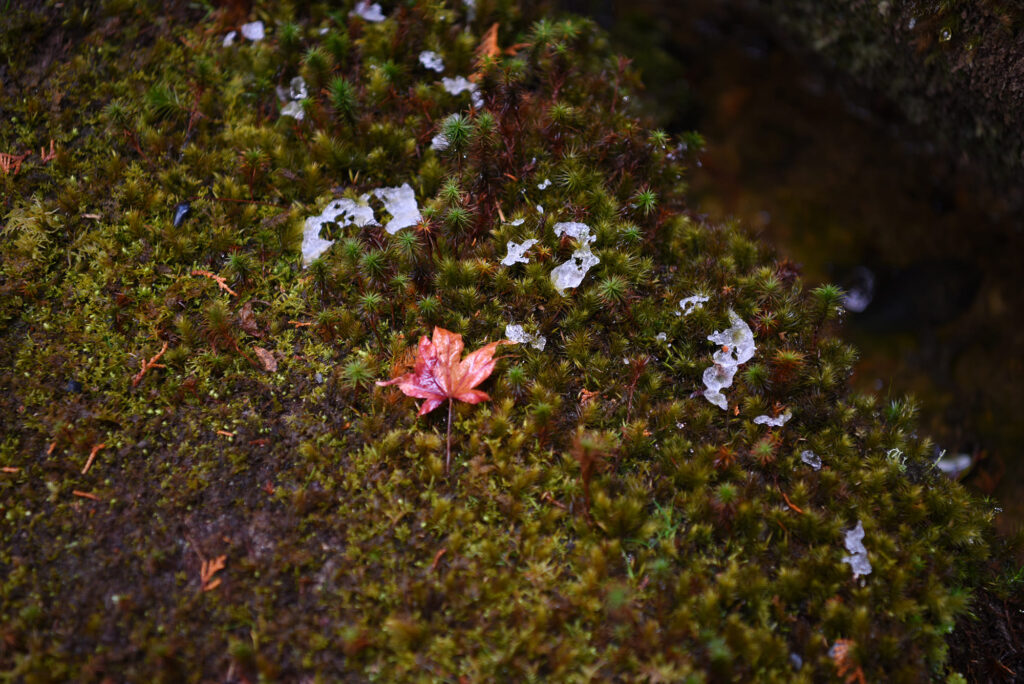
We can tell from just a short 40 years in the long history of the garden that it is busier, noisier, warmer, and brighter. And the seasons are disappearing! Perhaps more changes have happened in 40 years than in several hundred. It shows the importance of listening to the voice of the steward who has devoted his life to serving the temple.
When a place feels special it is because someone always welcomes you. For me the person in Saihoji who has always made me feel welcome is Mr. Taniguchi, and I cannot imagine the garden without him.
And gardens exist within larger environments. Hearing a first-hand account of how the environmental changes have damaged the area motivates us to think of what small or large steps we can make as individuals to help stop the destruction of the environment, such as consuming less meat, using public transport etc.
But more than anything it makes us realize that gardens are always only there because of the people that devote their lives to them. In Saihoji that is the gardeners but also the staff who all work so hard to create the most meaningful experience for visitors and preserve Saihoji for future generations.
It is quite normal for us to take for granted the work of others. But every aspect of our lives is dependent on the support of others, from the moment our mothers bear us to the moment the undertaker places us in a coffin. So today’s theme is expressing thankfulness to all the people in our lives. It is because of their support and strength we can strive towards the fulfillment of our dreams on the journeys of our lives. And I know from my own experience that the more you feel thanks, the happier you will become.
You can read more about Mr. Taniguchi from here.
Peter MacMillan
Peter MacMillan is a prize-winning translator, scholar, poet, and President of The Moon is a Boat Co., Ltd.
His translation, One Hundred Poets, One Poem Each (Hyakunin Isshu), was published in 2008, winning prizes in both Japan and the United States. After that, he completed an English translation of The Tales of Ise (Ise Monogatari), which was published by Penguin in 2016. He has also published a collection of poetry entitled Admiring Fields.
Awards:
Recipient of the Donald Keene Center Special Prize for the Translation of Japanese Literature
Recipient of the 44th Special Cultural Translation Prize from the Japan Society of Translators
Nominated for the PEN Award for Poetry Translation for the English translation of The Tale of Ise (Ise no Monogatari)
